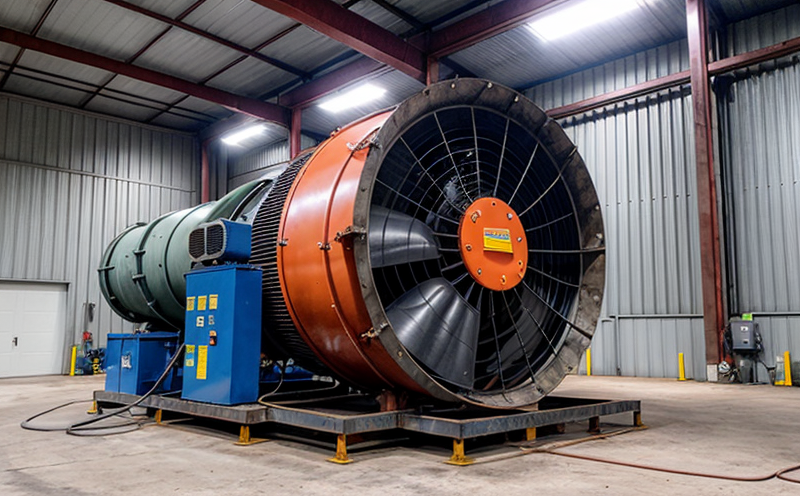Industrial fan and blower inspection
The inspection of industrial fans and blowers is a critical process that ensures optimal performance, longevity, and safety in various applications. Industrial fans and blowers are integral components in numerous sectors such as manufacturing, HVAC systems, mining, and power generation. Ensuring their integrity through regular inspections can prevent costly downtime and hazardous failures.
Industrial fans and blowers operate under extreme conditions where they are subject to high temperatures, pressure differentials, and varying levels of dust and debris. These harsh operating environments increase the likelihood of wear and tear, which can lead to reduced efficiency or complete failure. Consequently, regular inspections allow for timely maintenance, predictive analytics, and preventive measures.
The inspection process involves a meticulous examination of various components including impellers, blades, housings, bearings, seals, and drive mechanisms. The primary objective is to identify any signs of degradation or damage that could compromise the fan's performance or operational safety. This includes checking for wear patterns, corrosion, cracks, misalignment, and lubrication levels.
Advanced diagnostic tools such as laser vibrometry, thermography, and acoustic emission testing are often employed to provide a comprehensive assessment of the fan's condition. These non-destructive techniques allow for early detection of potential issues without compromising the integrity of the equipment. This proactive approach ensures that any necessary repairs or replacements can be scheduled during planned maintenance windows.
Compliance with industry standards and regulations is paramount in industrial fan and blower inspection. Compliance officers responsible for ensuring adherence to these standards play a crucial role in maintaining operational excellence. By conducting inspections according to recognized international standards like ISO, ASTM, and IEC, we ensure that the equipment meets the highest quality benchmarks.
The benefits of regular inspections extend beyond mere compliance. They contribute significantly to extended equipment lifespan, reduced energy consumption, improved safety, enhanced efficiency, and minimized environmental impact. Through detailed reports and recommendations based on inspection findings, we provide actionable insights that empower decision-makers with information necessary for informed choices.
Scope and Methodology
| Inspection Parameter | Methodology | Acceptance Criteria |
|---|---|---|
| Impeller Inspection | Laser vibrometry, visual inspection, and thickness measurement. | No detectable cracks or deformations; minimum allowable thickness specified by the manufacturer. |
| Blade Alignment | Thermographic analysis and laser alignment tools. | Blades within 0.25mm of nominal position. |
| Bearing Condition | Acoustic emission testing, grease sampling, and visual inspection. | No signs of overheating or lubrication failure; acceptable bearing wear levels as per manufacturer's specifications. |
| Seal Integrity | Pressure testing and dye penetrant inspection. | No leaks or visible defects under specified pressure conditions. |
Competitive Advantage and Market Impact
In a competitive market, maintaining the highest standards of quality assurance is essential. Our comprehensive industrial fan and blower inspection services offer several key advantages:
- Enhanced Equipment Reliability: By identifying potential issues early, we help prevent costly breakdowns and unscheduled downtime.
- Optimized Operational Efficiency: Regular inspections ensure that the equipment operates at peak efficiency, thereby reducing energy consumption and operational costs.
- Improved Safety Standards: Our inspections adhere to stringent safety regulations, ensuring that all industrial fans and blowers meet the necessary safety standards.
- Compliance Assurance: By adhering strictly to recognized international standards like ISO, ASTM, and IEC, we ensure full compliance with regulatory requirements.
The demand for reliable industrial equipment has grown significantly as industries increasingly prioritize sustainability and operational excellence. Our services play a pivotal role in this trend by offering robust inspection solutions that contribute to the overall reliability and efficiency of industrial processes.
Use Cases and Application Examples
The importance of industrial fan and blower inspections cannot be overstated across diverse industries. Here are some key use cases:
- Mining Industry: In mines, industrial fans play a crucial role in ventilation systems to ensure safe working conditions for miners.
- Petrochemical Plants: Large-scale blowers are used in petrochemical plants to maintain pressure and temperature control within reactors.
- HVAC Systems: Fans in HVAC systems are vital for maintaining optimal indoor air quality, especially in commercial buildings.
- Paper Mills: Industrial fans are critical in the pulp and paper industry for conveying raw materials through various stages of production.
In each case, regular inspections ensure that these essential components function optimally, contributing to overall operational efficiency and safety. The detailed reports generated from our inspections provide actionable insights that guide maintenance schedules and upgrade strategies.





